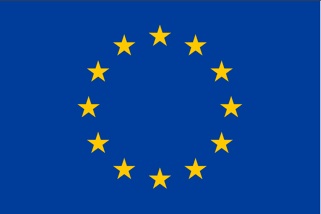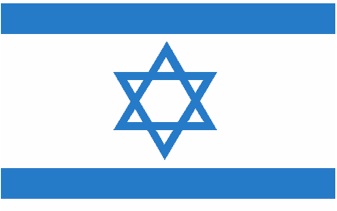Trade Agreements

The EU-Israel Association Agreement
This trade agreement exists within the context of the Euro-Mediterranean Partnership (commonly known as the ‘Barcelona’ Declaration/Agreement) (see below). The Association Agreement between the EU and Israel stands in parallel with other such agreements signed between the EU and Mediterranean states on the EU’s southern borders. Signed in Nov. 1995, after ratification by the EU and 15 Member States’ Parliaments and the Knesset, it came into effect in 2000. It replaces an earlier Co-operation Agreement of 1975.
The Association Agreement gives Israel preferential terms of trade with EU countries. It covers industrial goods, agricultural products (a new agreement came into force in 2004) and (since 2005) farm goods. Within this context Israeli exports to the EU are exempted from import duties in EU countries. In 2009 a German Court solicited a binding ruling from the European Court of Justice as to whether ‘goods from the occupied territories’ (viz. settlement goods) are to be so exempted and the Court (Oct. 2009) ruled that they are not so covered.
The Association Agreement Article 2 states: ‘Relations between the Parties, as well as all the provisions of the Agreement itself, shall be based on respect for human rights and democratic principles, which guides their internal and international policy and constitutes an essential element of this Agreement.’ As has been said: ‘That states plainly that human rights compliance by Israel is an “essential element”… not an optional … nor desirable … but an essential element’.The Agreement further requires respect for self-determination of peoples and fundamental freedoms for all.
The Euro-Mediterranean Partnership
(The ‘Barcelona’ Declaration)
The EU-Med Partnership brings together and governs the relations between the 27 EU member states and 16 partners from the southern Mediterranean and the Middle East, one of which is Israel. The declaration was signed in 1995, setting up what was described as ‘a comprehensive partnership among the participants’. In 2008 it was re-launched as the ‘Union for the Mediterranean’ with the aim of infusing a new vitality into the process. In this context the EU and Israel committed themselves to an Action Plan (of which more below).
According to the terms of the Partnership the signatories undertook to behave according to international norms in their relations with other states, promising to ‘act in accordance with the UN Charter and the Universal Declaration of Human Rights, as well as other obligations under international law, in particular those arising out of regional and international instruments to which they are party’. Specifically, in respect of their other partners within the Partnership, to: ‘refrain, in accordance with the rules of international law, from any direct or indirect intervention in the internal affairs of another partner’; ‘respect the territorial integrity and unity of each of the other partners’; and ‘settle their disputes by peaceful means, [calling] upon all participants to renounce recourse to the threat or use of force against the territorial integrity of another participant, including the acquisition of territory by force, and [reaffirming] the right to fully exercise sovereignty by legitimate means in accordance with the UN Charter and international law’.
Prima Facie Israel was in direct breach of these terms when it signed the Partnership Declaration and continues so to be. In 1995 Israel was occupying parts of the Lebanon and Syria and had annexed (this continues) the Golan Heights. The Lebanon and Syria are other Partners. Nor could it be said to be acting ‘in accordance with the UN Charter’. Contrary to Article 2.4 of the UN Charter, it was in military occupation of the West Bank and also (formerly) Gaza, as well as parts of the Lebanon and Syria. Whereas Article 25 of the Charter requires member states ‘to accept and carry out the decisions of the Security Council’, in 1995 Israel was in violation of some 25 Security Council resolutions. These required it alone to act (viz. they were not dependent on any ‘peace’ agreement with the Palestinians). These resolutions demanded, inter alia, that Israel should cease building settlements, reverse the annexation of East Jerusalem and open its nuclear facilities to IAEA inspection (see below).
The EU-Israel Action Plan, 2005-2010
The EU - Israel Action Plan has allowed an even closer partnership to develop. It states: ‘Israel and the EU are committed to achieve closer political co-operation and dialogue on the basis of their common values: the respect for human rights and fundamental freedoms, democracy, good governance and international humanitarian law. Both parties are committed to join efforts to combat common security threats, to promote peace and stability in the Middle East, to support the work of international multilateral frameworks and co-operate in these fora. The EU and Israel are also firmly committed to promote regional co-operation, as a way to address the challenges of a trans-boundary nature.’
Under ‘Shared Values’ one finds:
‘Democracy, human rights and fundamental freedoms:
– Work together to promote the shared values of democracy, rule of law and respect for human rights and international humanitarian law
– Explore the possibility to join the optional protocols related to international conventions on human rights
– Promote and protect rights of minorities, including enhancing political, economic, social and cultural opportunities for all citizens and lawful residents’
and so forth.
The European Commission External Relations website tells us:
‘The EU and Israel committed themselves to establishing a partnership which provides for close political and mutually beneficial trade and investment relations together with economic, social, financial, civil scientific, technological and cultural cooperation. … Its objective is to gradually integrate Israel into European policies and programmes. Every step taken is determined by both sides and the Action Plan is tailor-made to reflect Israel’s interests and priorities as well as its level of development.’
There was also, for the first time, a financial assistance element to EU-Israel cooperation: Israel was eligible for €14 million in European Community financial cooperation over seven years.
The European Neighbourhood Policy
The EU Neighbourhood Policy was first outlined in a Commission Communication in March 2003. In an upgrade of 2004 Israel became a ‘partner’ in the EU’s European Neighbourhood Policy.
The ENP involves ‘working together with those states who share a land or sea border with the EU to increase their prosperity and stability’. Those neighbours ‘who want to carry out reforms to improve their standards of democracy and human rights, to increase their access to the Union's single market, to improve the environment or to step up their co-operation with the EU on issues like energy, transport or migration, have the chance to work on a joint Action Plan with the EU, and can look forward to substantial assistance: technical help, political support, and more aid money’. (‘European Commission, European Neighbour Policy’, ‘Funding’: see documents below).
The ENP website says, of the EU Commission, that: ‘It will continue to promote stability notably through the sustained promotion of democracy, human rights and the rule of law throughout the neighbourhood.’ (‘A Strong European Neighbourhood Policy’: see documents below). Meanwhile the European Directorate-General for Trade website tells us that the ENP Instrument will be endowed with €11.9 billion for 2007-2013, of which Israel will be allocated €2 million a year for technical and institutional cooperation, the focus being ‘supporting regulatory approximation of Israeli legislation to EU legislation with a view to facilitating trade and cooperation’. (For bi-lateral trade relations with Israel see European Commission, Trade, Israel: see documents below.)
Possible Up-grade of the Association Agreement (Protocol of Co-operation)
The European Union has been seeking to upgrade its political and economic relations with Israel. In Dec. 2004 Israel was among the first tranche of seven states with which the EU agreed ENP (European Neighbourhood Policy) ‘Action Plans’. In this context, in April 2008 a ‘Progress Report’ was issued which listed - one would have thought discouragingly: the stalled peace process, the situation of the Arab minority in Israel, the closure policy in the West Bank, administrative detentions, expansion of settlements in East Jerusalem and so forth. Following this the Palestinian Prime Minister Salam Fayyad wrote to the President of the European Commission (José Manuel Barroso), the EU High Representative for Foreign and Security Policy (Javier Solana), the Commissioner for External Relations, the President of the European Parliament and the Prime Ministers of the 27 member states, insisting that relations with Israel be frozen until Israel addressed these points.
Incredibly, the EU Council of Ministers, meeting in June 2008, voted unanimously to proceed with the upgrade; an upgrade which was to take the form of various steps involving commerce, the economy, academic ties and improvement in the diplomatic dialogue. (Haaretz, 18.06.08). However, in early Dec. 2008 (before the attack on Gaza), in response it seems to pressure from civil society, the European Parliament voted to postpone the upgrade process (194 in favour, 173 against). The then Israeli Foreign Minister Tzipi Livni, who was in Brussels to plead for an up-grade, went away empty-handed. The matter of an upgrade has remained suspended. In December 2009 the EU Council commented that any upgrade ‘must be based on the shared values of both parties, particularly on democracy, respect for human rights, the rule of law and fundamental freedom, good governance and international humanitarian law’.


Wikipedia Commons
The EU is Israel’s foremost trading partner.
Trade in Goods. In 2009 Israel imported €11.4 billion worth of goods from the EU and exported €8.8 billion worth of goods to the EU. This represented a contraction of 26% as compared with 2008 on account of the world economic crisis.
Trade in Services. In 2008 Israel imported €3.7 billion worth of services from the EU and exported €3 billion. Half of the services are ‘business services’, travel and transportation services.
Foreign Direct Investment. FDI stocks in Israel almost doubled from 2002-2008. Outflow reached €41.3 billion and inflow €38.5 in 2008. EU investment in Israel amounted to €3.5 billion in 2007; Israeli investment in the EU amounted to €6.3 billion.
Source: http://ec.europa.eu/trade/creating-opportunities/bilateral-relations/countries/israel/
European Community Documents relevant to EU-Israeli trade arrangements:
-
-The ‘Association Agreement’ pdf.
-
-The Euro-Med Partnership, ‘Barcelona Declaration’ pdf.
-
-The European Neighbourhood Policy, pdf.
-
-Specifically for Israel, the ‘Action Plan’ pdf.
-
-The European Neighbourhood Policy ‘Country Report’ for Israel pdf.
-
-For European Neighbourhood Policy ‘Progress Report’ for 2009, published May 2010, for Israel pdf.
-
-For an overview of the economic help given to Israel by the EU through these agreements, pdf and pdf.
-
-For funding given in conjunction with the European Commission, European Neighbourhood Policy click here.
-
-For European Neighbourhood Policy ‘Strategy Papers’ click here; including ‘A Strong European Neighbourhood Policy’ pdf.
-
-For bi-lateral trade relations with Israel click here.